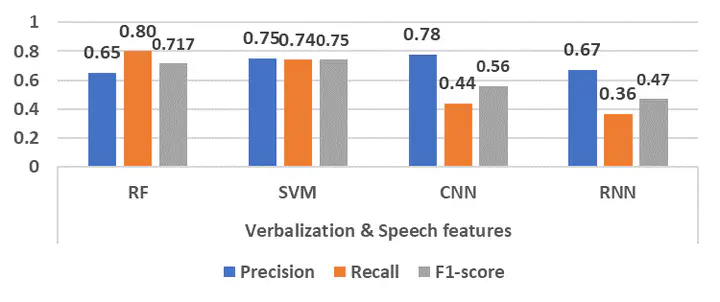
Abstract
Think-aloud protocols are a highly valued usability testing method for identifying usability problems. Despite the value of conducting think-aloud usability test sessions, analyzing think-aloud sessions is often timeconsuming and labor-intensive. Consequently, previous research has urged the community to develop techniques to support fast-paced analysis. In this work, we took the first step to design and evaluate machine learning (ML) models to automatically detect usability problem encounters based on users’ verbalization and speech features in think-aloud sessions. Inspired by recent research that shows subtle patterns in users’ verbalizations and speech features tend to occur when they encounter problems, we examined whether these patterns can be utilized to improve the automatic detection of usability problems. We first conducted and recorded think-aloud sessions and then examined the effect of different input features, ML models, test products, and users on usability problem encounters detection. Our work uncovers several technical and user interface design challenges and sets a baseline for automating usability problem detection and integrating such automation into UX practitioners’ workflow.